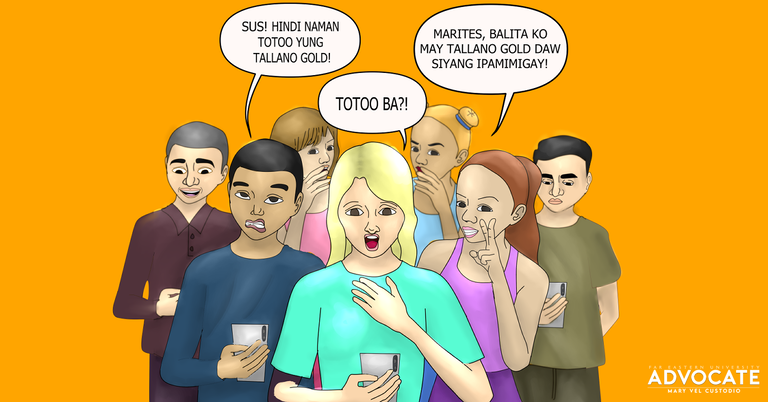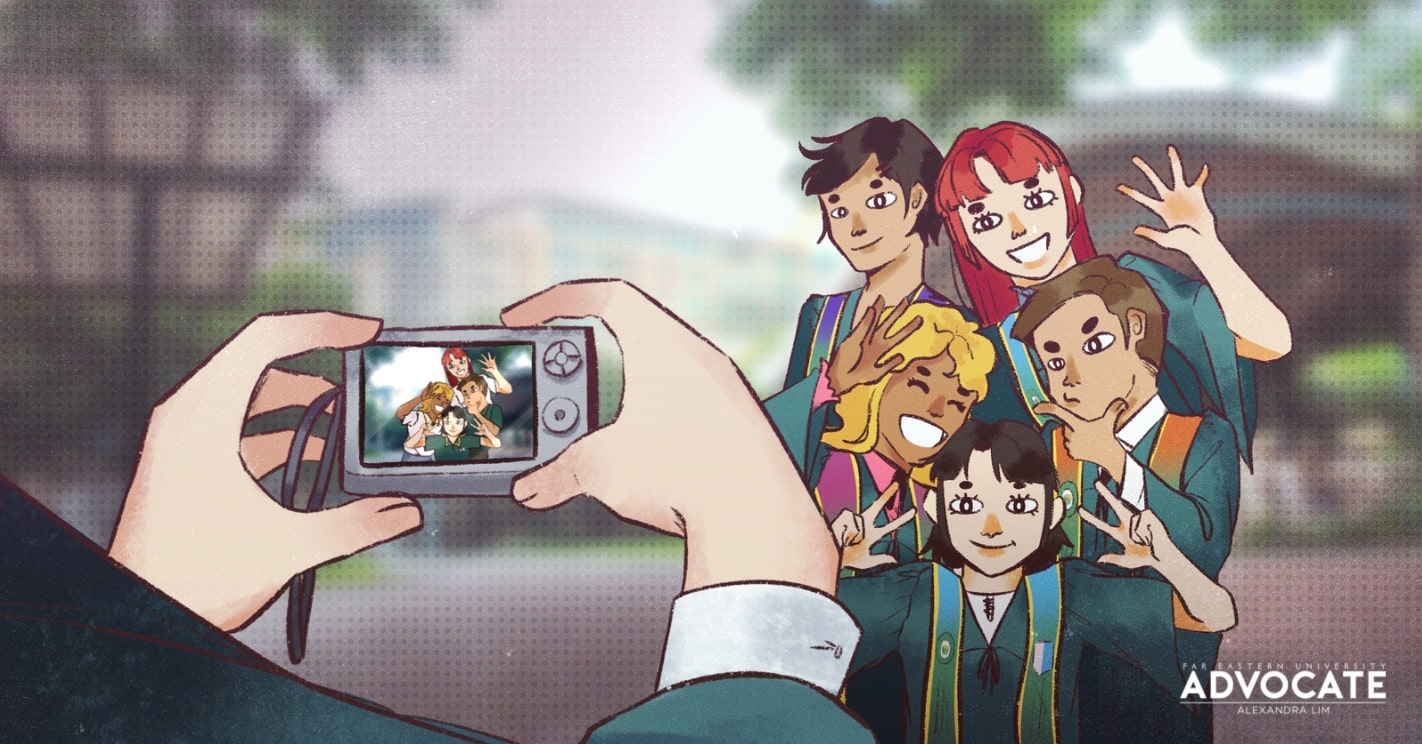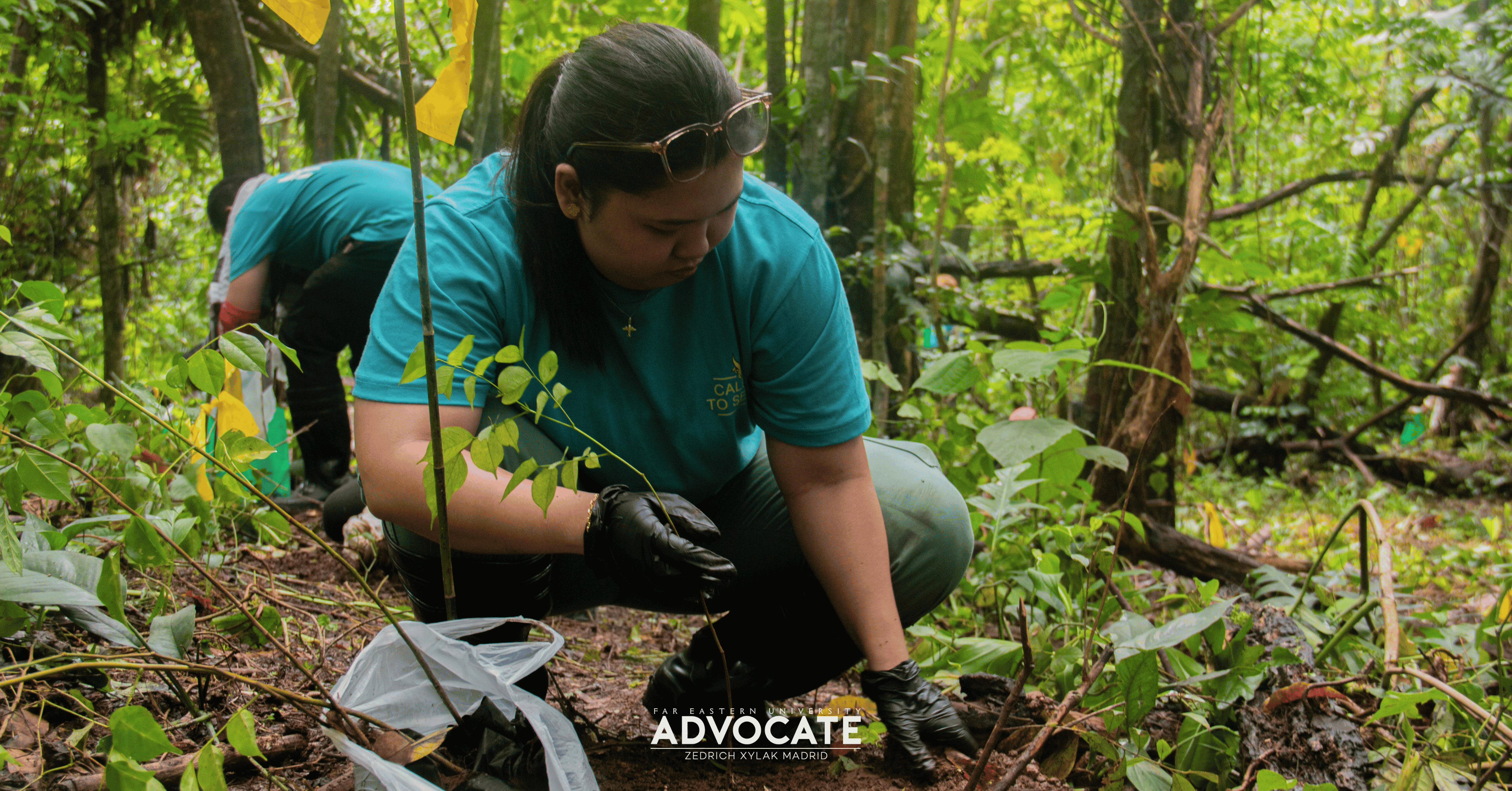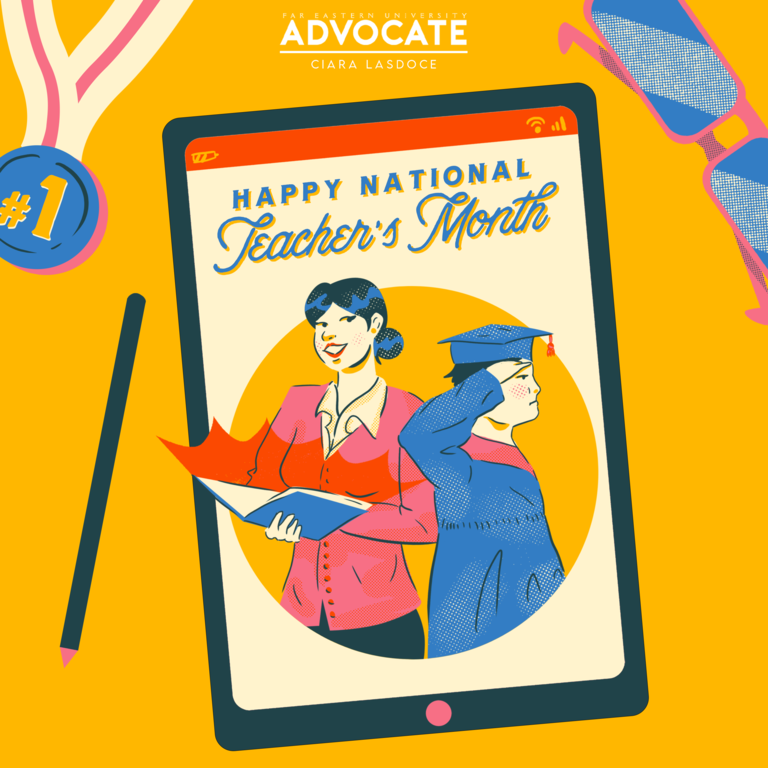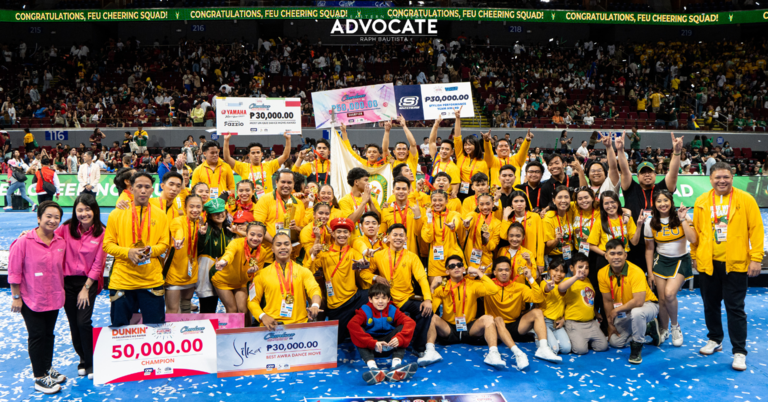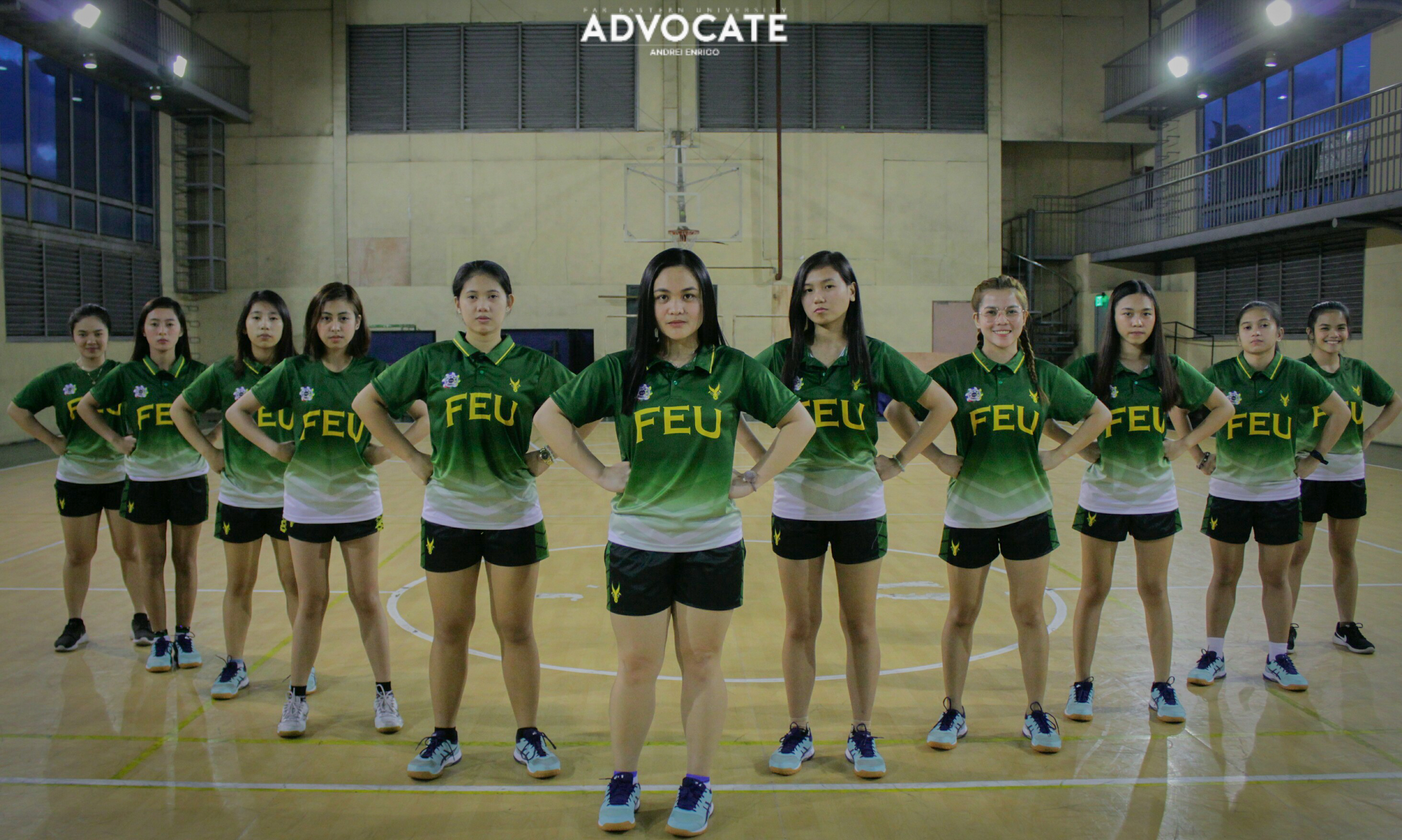
Gabutin to lead rookie-laden Lady Paddlers back on podium
- November 11, 2019 14:28
FEU Advocate
November 26, 2021 05:05

The Far Eastern University (FEU) Library supports its students’ and faculty members' teaching, learning, and research needs through diverse materials and invaluable services. Regardless of the sudden shift to online learning, the library staff managed to fully serve the best they could by establishing new policies, guidelines, and responsibilities.
Following Presidential Proclamation No. 837, November has been the Philippines' Library and Information Services (LIS) Month since 1991. Its purpose is to educate people on the integral part of libraries to one's enlightenment and development.
The theme of LIS Month 2021 is "Libraries building ROADS: Readers. Opportunities. Advocacies. Development. Sustainability." With the help of libraries like FEU Library, the authentic record of knowledge remains to shape someone's insight and creativity towards a progressive life and society.
Libraries Paving ROADS
With the transition to the world of virtual spaces, libraries have struggled in shifting their services towards being more technology-centric. With this in mind, the Philippines celebrated its 31st LIS Month, with libraries all over the country taking part in raising the public’s awareness of how significant libraries are to society by bravely preserving knowledge and spearheading the conservation of correct information.
Under the leadership of the National Library of the Philippines (NLP) and the National Commission for Culture and the Arts - National Committee on Libraries and Information Services (NCCA-NCLIS), the celebration consists of different activities throughout the entire month of November.
Taking after their theme, the planned activities aim to improve the level of awareness and overall attitude of the library community as a whole regarding their role in the United Nations (UN) 2030 Agenda and their Sustainable Development Goals (SDGs). SDGs, or also known as Global Goals, is a list of 17 goals formed by the UN in 2015 as a universal call to action to end poverty, protect the planet, and achieve peace and prosperity for all people by the year 2030. The list includes “zero hunger”, “quality education”, “gender equality”, “affordable and clean energy”, and “sustainable cities and communities”, among others.
Multiple contests were launched during the month for anyone interested to join, including a Book Spine Poetry, Book Face Contest, and a Share-A-Book Book-Based Interactive Storytelling Contest. There were also several webinars on a myriad of relevant topics such as public speaking and personality development.
FEU Library Services Then and Now
During face-to-face classes, the FEU Library was able to accommodate 2,300 students with its three floors. It also has internet access to around 260 computer units in the e-library and the viewing room. All students have 20 hours of computer usage per semester and a 15 Pesos charge for exceeding hours.
Regularly, the library staff from the Circulation Service assist students in borrowing, reserving, photocopying, and returning books. For materials owned by the library, only 10% is allowed to be photocopied in accordance with the Intellectual Property Code. They also recommend other community resources and agencies that may provide the students’ academic needs which are not available in the FEU Library.
Mrs. Maria Gia Guinoo-Gamolo, the University Librarian, has shared about their Reference Service that taught students how to properly maximize the use of library resources, services, and facilities. Such mandatory activities are prepared for everyone, especially the freshman students, from September to October. She also mentioned other helpful services such as the bibliography listing, discussion rooms with a maximum of two hours, the current awareness bulletin to update library users, EBSCOHost, and JSTOR.
The University Librarian spoke about how they value compliance, responsibility, and accountability. They obey the requirement of having a licensed librarian for every 1,000 students. Furthermore, the integrity of materials is essential, so they must check and update the collection within the last five years. Dissemination of the correct information and the neatness and orderliness of their books are already being practiced by heart.
They were able to research and benchmark on local and international practices - how they have adjusted to the new normal setup. As a result, the pending transactions were resolved through online communication, couriers, and cooperation with both parties. Moreover, the constant planning and meeting with management caused the convenience and effectiveness of the new library services.
At present, the FEU Library updates and communicates via Facebook, Instagram, Yammer, email, and their official website. Students can read the new policies and guidelines of borrowing books, such as the necessary forms, qualifications, material options, and procedures. According to Mrs. Guinoo-Gamolo, “Because of the new policy guidelines that we have implemented, it would be easier for them to get what they want.”
Tamaraws on their Library Experience
To Tamaraws who depended on libraries not only as a place to gather information but also as a safe space where they can study undisturbed, being unable to physically access libraries took a toll on some FEU students.
Sophia Asis, a 4th-year Medical Technology student who used to go to the FEU library every day to study and do her assignments, the loss of her “comfort place” made a huge impact on her academic routine.
“Mahirap, kasi minsan dumadayo talaga ako sa school library para lang mag-aral kahit wala akong pasok para mas makapag-concentrate ako at walang umabala sakin, (It’s difficult, because before I will really go to the school library to study even when I don’t have classes for the day so I can concentrate more and no one can disturb me,” she shared.
Although the FEU Library made its resources and services accessible online with the shift to remote learning, Asis said she still prefers it when she could physically visit the library.
“Doon mas tahimik at wala akong inaalala kasi walang umaabala sakin na ibang tao and mas nakakapag-concentrate ako at natatapos ko yung mga gawain ko nang mas mabilis, (It is quieter there and I don’t have to worry about anything because no one is bothering me and I can concentrate more so I can finish my works quicker),” Asis continued.
Similarly, Kaizen Zuño, a 4th year Language and Literature Studies student who also liked to frequent the library more for the environment it provided than the actual services, the use of online libraries just aren’t on par with physical libraries.
“I tried, but it just doesn’t work for me,” he shared when he was asked whether he tried accessing the online resources and services of the FEU library during the past few semesters of remote learning.
The struggles and worries of the librarians when the pandemic hit are also felt by the students, although making their resources and services accessible online is surely a step towards innovation, physical libraries remain an integral part of the college experience of Tamaraws. Providing a comfortable environment and a safe space for those who need them are duties of libraries that are as important as providing books and information.
Constant innovation in accessing information puts people at risk of inappropriate and fake data that could adversely affect their literacy and relationships with others. With library and information services, everyone has the chance to improve and better understand the whys and the hows. If education is one’s door to success, let libraries impart the right, sufficient, and indispensable knowledge.
- Mikaela Anne A. Laxa and Samantha Cheyenne Gail D. Pagunuran
(Photo by Juan Pablo F. Parian/FEU Advocate)

